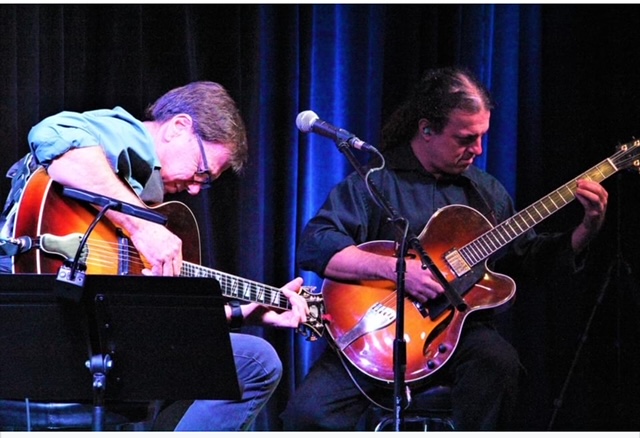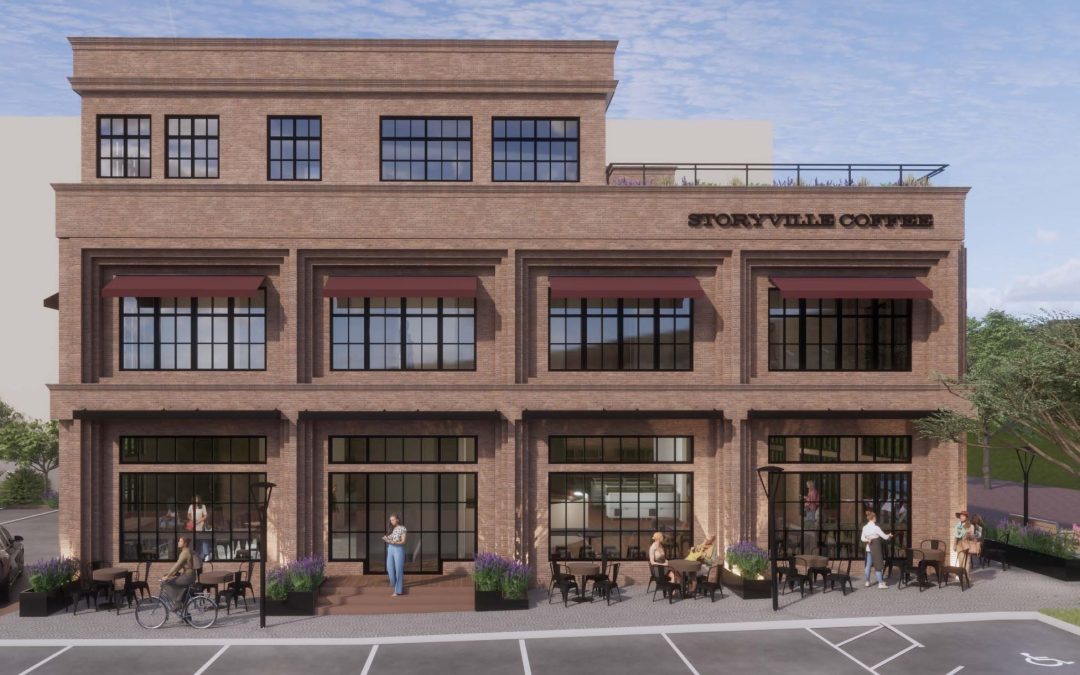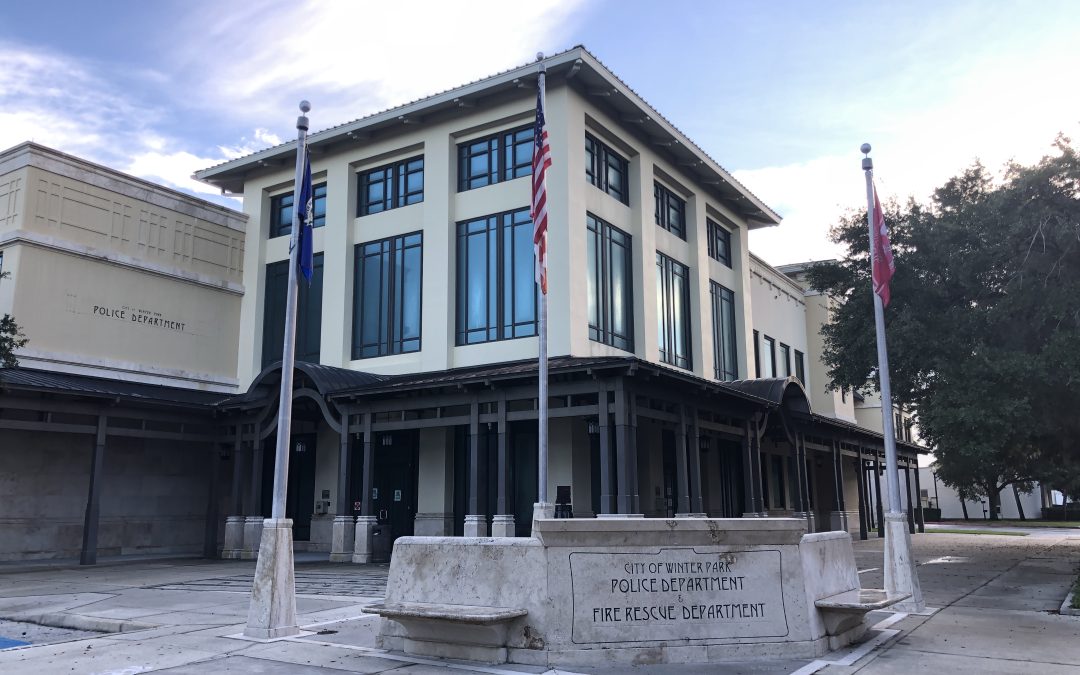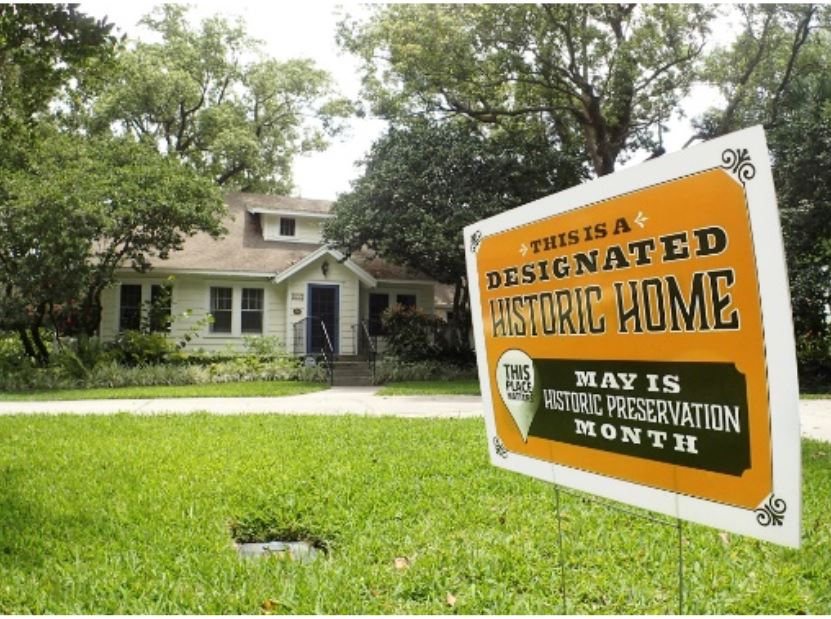
by Beth Kassab | Jun 27, 2024 | City Commission, News, Uncategorized
Blue Bamboo and city hammer out lease for old library building
After what was, at times, a contentious discussion, the city took another step toward a new path for the old library
June 27, 2024
By Zoey Thomas
The Winter Park City Commission unanimously approved Blue Bamboo Center for the Arts’ lease agreement for the old library building after two hours of negotiations at a meeting Wednesday evening.
Earlier this month, the Commission turned down a higher dollar proposal from Rollins College in a 4-1 vote to allow Blue Bamboo to take over the building. Mayor Sheila DeCiccio was the lone vote against the project then, but she voted to approve the lease this week.
Blue Bamboo, a local nonprofit live music venue, plans to turn the building into a multicultural arts center by renting out rooms to other nonprofits — including Central Florida Vocal Arts and the Winter Park Chamber Music Academy. It drafted its proposed lease to the Commission with input from City Manager Randy Knight.
DeCiccio presented several changes to the proposed lease, all of which she called “essential to protect the residents of Winter Park.” The mayor voiced concerns about the venue’s financial prospects throughout the meeting.
“We’re dealing with a lessor who doesn’t have a proven financial record behind them,” she said. “If we’re going to take this leap of faith, we need to have some protections in there.”
The old library building will require at least $175,000 in renovations to bring it up to code, according to an inspection report presented by Vice Mayor Todd Weaver earlier this month. Blue Bamboo’s managing director, Chris Cortez, has said he has access to up to $800,000 for first-floor renovations alone in the three-story building.
DeCiccio suggested requiring Blue Bamboo to provide evidence of available cash in the bank or a preapproved loan before beginning renovations on the building. Such documentation, which could include bank statements or a loan approval letter, would have to be submitted within one year.
Weaver opposed the requirement, calling Blue Bamboo’s bank statements “none of our business.” Winter Park has no such terms for other nonprofits that rent city property, including historic home museum Casa Feliz or the Winter Park Library, he said.
DeCiccio urged commissioners not to compare Blue Bamboo’s “unique position” to the city’s other leased properties. She was eventually outnumbered by her fellow commissioners, who agreed with Weaver that evidence of financial viability was both hard to define and unreasonable to demand.
“Why are we looking so hard at finding ways to terminate the lease or get them out of the lease?” said Commissioner Craig Russell. “Do we want to go back to paying all the bills to have an empty building?”
During public comment after the Commission’s discussion, however, Blue Bamboo Director Cortez said he had no problem proving viability by going through the building with a contractor, getting a bid and showing funds to the city.
“I could’ve saved us a lot of time, but I was told to be quiet, so I let you guys sit there and work through that mess,” he said. “But it really isn’t necessary, because we think it’s very reasonable.”
Other adjustments went more smoothly. While the original lease specified Blue Bamboo be given five year’s notice in the event of an eviction, and DeCiccio suggested a one-year notice, the commission compromised on two.
Another conversation, over the lease’s parking clause, lasted for several minutes until commissioners eventually agreed the lease’s language on the subject didn’t need changing — other than striking one line that repeated guidelines already listed in the city parking code.
Mark Horn, a musician living in Tavares, was one of 12 Blue Bamboo supporters who spoke during public comment. As a Seattle native who has visited jazz clubs across the country, Horn hopes the city recognizes how special Blue Bamboo is, he said.
“We’re here talking about permitting Blue Bamboo to exist, and I hope very soon that convo shifts to, ‘How can we promote Blue Bamboo?’” he said.
Blue Bamboo said the slight adjustments made to the proposed lease will not affect its business moving forward in a Facebook post following the meeting. It previously criticized the lease proposed by DeCiccio, which it said would sour the deal and only benefit the city.
Commissioners are expected to vote for final approval July 12.
WinterParkVoiceEditor@gmail.com
To comment or read comments from others, click here →

by Beth Kassab | May 24, 2024 | City Commission, News, Uncategorized
Commissioners approve Storyville Coffee and more Christmas lights, but reject canal murals
The board also decided to hire a town architect
May 23, 2024
By Beth Kassab
City Commissioners approved plans for a new building known as the Storyville Coffee project and doubled the public budget for Christmas lights, but rejected a proposal to paint murals to the canal bridges that connect the city’s famous chain of lakes.
The Storyville Coffee project from Full Sail founder Jon Phelps won unanimous approval by the board after a redo of its design to blend more closely with the surrounding Central Business District. The building on South Knowles Avenue will top 11,000 square feet and contain offices and a residence on the second and third floors.
Christmas lights
Commissioners this week also welcomed plans by the Park Avenue District to expand the city’s Christmas display, pledging another $50,000 from the general fund and what will likely be an additional $50,000 from the Community Redevelopment Agency Fund. The portion from the CRA board won’t be finalized until a later meeting of that board.
The new expenditures will come on top of the $96,000 already in the city budget for holiday decor.
The nearly $200,000 total commitment doubles the city’s expenditure on Christmas decorations and the newest portion will be provided as a match of up to $100,000 raised privately by the district.
The idea is for the display at Central Park and Park Avenue along with Hannibal Square and Morse Boulevard to be more immersive and attract more visitors to shop and dine in the area. A sample mood board for the additions includes lots more lights, magnolia flowers and oranges and immersive light experiences such as archways.
Canal Murals
Commissioners gave a thumbs down to an idea from the Public Art Advisory Board to commission artists to paint murals under the canal bridges that connect the Chain of Lakes.
The canals pose too harsh an environment for art, several commissioners said.
“I love murals, but they have to be put in the right place,” Weaver said. “This is kind of a nasty environment for fine artwork.”
Commissioner Craig Russell said he loved the idea and made a motion to pursue the murals, but it failed for lack of a second from another commissioner.
Town Architect
Winter Park will hire a town architect, likely as a contracted role to be called on as needed.
Former Mayor Phil Anderson, who just left his post in April, attended the meeting to support the idea.
“I think it’s probably time for winter park to join Charleston or Carmel who have an expert available,” Anderson said.
The discussion of creating the new position comes as Mayor Sheila DeCiccio is finalizing a board to set design guidelines for the key business districts along Park, Orange and Fairbanks avenues. She noted the number of large projects coming up for approval and the need for additional eyes to help
Russell expressed skepticism about the need for the role.
“What are the unintended consequences of adding another chef to the kitchen?” he asked.
Commissioner Kris Cruzada said he supported the idea in an effort to maintain the aesthetic of the city.
“There’s a look and feel and we may need to have someone on board to protect that look and feel going forward,” he said.
WinterParkVoiceEditor@gmail.com
To comment or read comments from others, click here →

by Beth Kassab | May 23, 2024 | City Commission, Library, News, Uncategorized, Zoning and Development
Rollins makes pitch to turn old library into art museum
The college wants to add 5,000 square feet to the building rather than pursue earlier plans for new construction
May 23, 2024
By Beth Kassab
Officials from Rollins College along with developer and philanthropist Alan Ginsburg made a pitch on Thursday to take over the old city library building and turn it into the college’s art museum complete with an auditorium, educational space and a 5,000-square-foot addition.
The conversation took place Thursday at a work session among city commissioners, who have tried for years to find a suitable use for the old brick building, including two failed requests for proposals.
Rollins President Grant Cornwell, who announced his retirement earlier this year, said the college was willing to shelve more expensive plans for new construction, the latest version of which were approved by the commission last year.
Cornwell said encouragement from Mayor Sheila DeCiccio and Ginsburg as well as a fundraising shortfall toward the $30 million for the new construction all weighed into the college’s decision to consider the old building.
“The first reason we’re here is because the mayor asked us,” he said. “… If this all came together and we could repurpose the building, that’s something we have to take seriously.”
He said donors have committed about $18 million to the project, which may cover the cost of renovating the old library and would allow a new museum to open much sooner than if the college pursued all new construction.
Ginsburg, a former Rollins trustee who has helped the college develop several projects, called himself a “pro bono developer” on the proposal and pushed for the change in plans after he was approached to help finish fundraising for the more expensive version of the project.
City commissioners appeared largely open to the idea and agreed to allow City Manager Randy Knight to begin negotiations with Rollins, which would prefer to buy the land from the city, along with several other groups that have recently expressed interest in the building.
The concept will appear for more formal discussion at the next City Commission meeting in June.
The Blue Bamboo Center for the Arts, a nonprofit music venue, recently lost its lease in Winter Park and also expressed interest in repurposing the old library into a music venue and teaching space. Jeff Flowers, a former Maitland city commissioner and chairman of the Blue Bamboo’s board, also gave a short presentation at the work session.
Commissioner Todd Weaver said the Orlando Opera as well as another group has also expressed interest in the building since the last request for proposal from the city yielded just one response.
WinterParkVoiceEditor@gmail.com
To comment or read comments from others, click here →

by Beth Kassab | May 18, 2024 | City Commission, News, Uncategorized
Full Sail founder looks to bring Storyville Coffee concept to Winter Park
The Seattle-based company owned by Jon Phelps also occupies a spot at Pike Place Market
May 17, 2024
By Beth Kassab
A founder of Full Sail University is seeking approval to develop a three-story building just off Park Avenue to be anchored by Storyville Coffee, a concept he started on the west coast.
Jon Phelps, who declined to be interviewed for this story through Zane Williams of Z Properties, a design-build company, started Storyville Coffee and operates a mail business and two locations, according to the company’s website.
The coffee shop will occupy the first floor for the building proposed at 111 S. Knowles Avenue, which is owned by a corporation with the same address as Full Sail.
City commissioners will consider the 11,289-square-foot project on Wednesday. The second floor would contain office space and the third floor would serve as a residence.
Storyville Coffee was mentioned last year in the Seattle Times for serving the city’s most expensive latte at $8.50 — or $10.37 after tax and a $1 tip is included.
The story said the coffee concept was founded in 2006 by a group associated with the Seattle-area evangelical megachurch Mars Hill, which was disbanded in 2015. Phelps served as a member of Mars Hill’s board. He is the manager of Storyville Coffee, which filed with the Florida Division of Corporations in 2009 and also lists the same address as Full Sail, according to documents on the division’s site.
The development is proposing 14 parking spaces, which would accommodate both the commercial and residential uses, according to a city staff memorandum. The parking is in line with what was offered by the previous tenant at the property the Imperial at Washburn Imports.
Staff is recommending that the proposed tenant and any future tenants comply with the city’s noise ordinance, including no outdoor speakers or live entertainment on the patio.
WinterParkVoiceEditor@gmail.com
To comment or read comments from others, click here →

by Beth Kassab | May 11, 2024 | City Commission, Election, News, Uncategorized
Minors told police campaign treasurer offered them $50 for 50 of opponent's signs
The campaign treasurer for Craig Russell denied he had any involvement in the incident in an interview with detectives detailed in newly released records
May 11, 2024
By Beth Kassab
Newly released police records provide more details of the allegations that teenagers were offered money to steal campaign signs, leading to three misdemeanor charges against Christopher Hoats, campaign treasurer for Commissioner Craig Russell.
Four minors interviewed separately by Winter Park Police provided consistent accounts of what happened, police said. Two of the boys identified Hoats from a photo line-up and said he was the person who approached them on March 21 as they were skateboarding outside Floyd’s Barbershop in Maitland. The boys said Hoats offered to pay them $50 to steal 50 of Jason Johnson’s campaign signs, according to the document.
The incident occurred as Johnson and Russell were two days into a heated runoff contest for Seat 2 on the City Commission.
Three misdemeanor charges against Hoats — two counts of contributing to the dependency or delinquency of a minor and one count of petit theft — were made public for the first time last week after Hoats was issued a summons to appear in the case.
Hoats did not respond to messages seeking comment from the Voice. Russell, who did not respond to messages seeking comment, released a statement to the Orlando Sentinel last week that said he is “deeply concerned” about the allegations and noted that his campaign has not been accused of any wrongdoing.
One of the boys, who was interviewed by police at his school on March 29, told the detectives that the man said he “was going to pay me to steal signs in Winter Park,” according to a capias request, which details probable cause in the case for the State Attorney.
“The man told us to steal these signs that had Jason Johnson on the signs,” the boy said. ” It was for a city election if I’m not mistaken. He told us the other candidate was stealing his signs so he ran out from the barbershop and asked if we were willing to steal signs for some cash.”
Two boys identified Hoats from a photo lineup, according to the document.
They also told police the man gave them his Instagram account and showed the account to police.
On April 2, police also obtained video footage from the barbershop and observed Hoats at the business on March 21 and also verified with employees that he had a haircut scheduled for that day.
The report goes on to say that detectives went to Winter Park High School, where Hoats helps coach football, in an attempt to talk with Hoats, but learned he is not a teacher and was not at the school.
Police then arranged to meet Hoats at the police department on the afternoon of April 2.
According to the report, Hoats told police he coaches high school football and did not recall any juveniles who were skateboarding. Later he said he recalled speaking with kids outside the barbershop and “immediately stated that he spoke to the juveniles about a local city election.”
He asked the kids who they were voting for and who their parents are voting for, the report stated.
“He stated they were younger; and that it was a ‘harmless conversation,” according to the report, and asked police if the kids were “stealing campaign yard signs.” Police noted that they had not mentioned “campaign signs” to Hoats, only “signs.”
Police asked Hoats why he would want to follow someone he did not know on Instagram after he noted one of the boys sent him his Instagram profile.
“Yeah to tell them who to vote for, who not to vote for, this is who we’re going up against, this is our competition,” Hoats responded, according to the report.
Hoats told police he did not encourage the kids to steal signs and was not a “kingpin” and “that no one asked him to have the signs stolen, he only informed the juveniles not to vote for Jason Johnson and to vote for Craig Russell.”
“Here’s the good guys, here’s the bad guys,” Hoats said, according to the report, and denied offering the kids $1 for every sign they stole.
The report goes on to describe how police arrived at Winter Park High School on April 8, eight days before the runoff election, in an attempt to talk with the candidate, Russell. The school resource officer took police to the gym and football coach’s office, but they learned Russell was not there.
Police later arranged to speak with Russell at his house and he told them that he contacted Hoats to tell him police had been at the school looking to speak with him.
Russell told police that “when he began the campaign he had little knowledge about the political makeup of the city and how involved people were, or the extent people would go to to make things up,” according to the report.
Russell also told police that he gave his campaign volunteers rules and told them not to touch the signs of his opponent.
“Mr. Russell further stated he did not have time to conspire to get kids to take signs,” the report stated.
Russell told police that Hoats served as his campaign treasurer but had asked Hoats to step away during the runoff portion of the campaign because Hoats had become too busy.
“Craig Russell repeatedly stated there was no way Christopher Hoats would have sent the juveniles to take the signs, and believed his opponent’s supporters were involved with this incident,” the report stated. “… He found it suspicious this occured after he won the general election.”
Russell won the April 16 election by 34 votes and was sworn in on April 24.
Winter Park Police concluded there was enough evidence to turn the case over to the state attorney, though the date that occured is unclear from the records.
WinterParkVoiceEditor@gmail.com
To comment or read comments from others, click here →

by Beth Kassab | May 7, 2024 | Historic Preservation, News, Uncategorized
Orange signs? All about historic preservation in Winter Park
May marks a time for awareness about historic properties and their value to communities like Winter Park
May 7, 2024
By Beth Kassab
Just as those election yard signs are disappearing, Winter Parkers might notice another sign popping up in yards across the city — Orange reminders of May as Historic Preservation Month.
Residents of historic homes are pulling out their signs as a visual reminder of the importance of preserving past architecture and charm to maintain the city’s vibrant character.
Winter Park’s Historic Register lists more than 120 homes and continues to grow each year.
Historic districts in the city include College Quarter, Virginia Heights East, Interlachen Avenue and the downtown area centered on Park Avenue.
Those in need of signs can contact the following: Sally Flynn: flynnlinks@aol.com; Stephen Pategas: spategas@hortusoasis.com or John Skolfield: john@skohomes.com
WinterParkVoiceEditor@gmail.com
To comment or read comments from others, click here →






Recent Comments